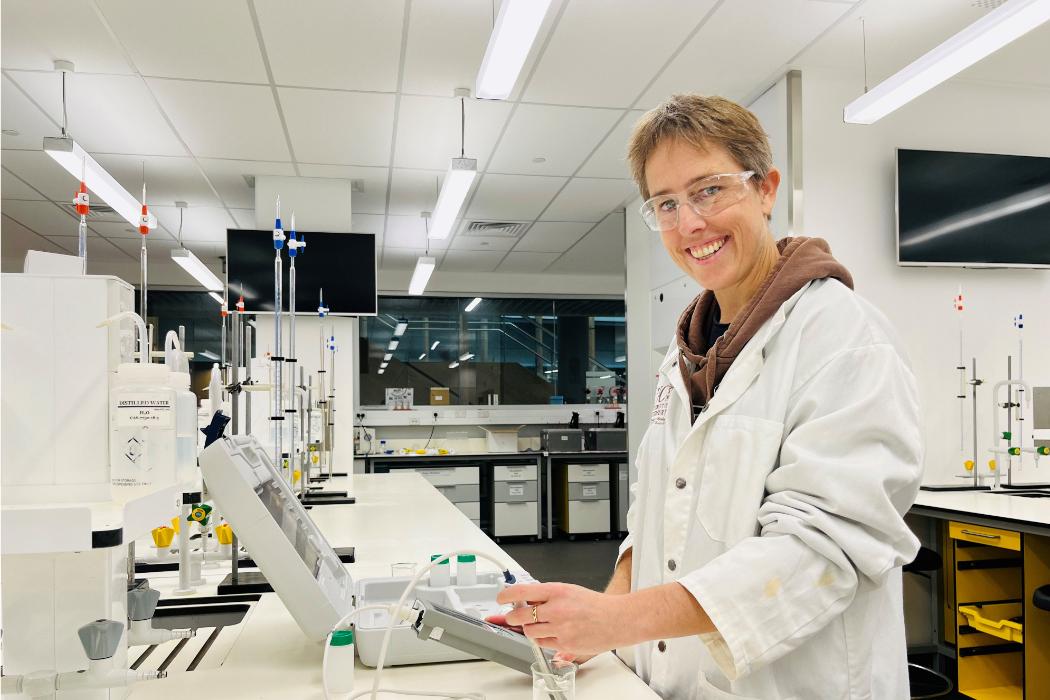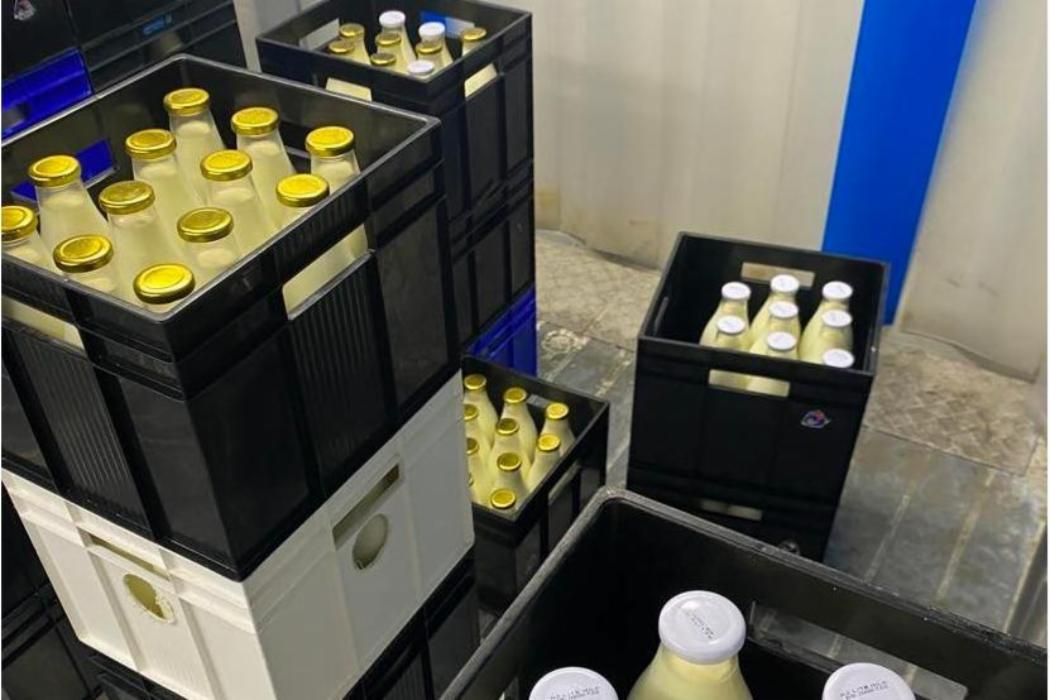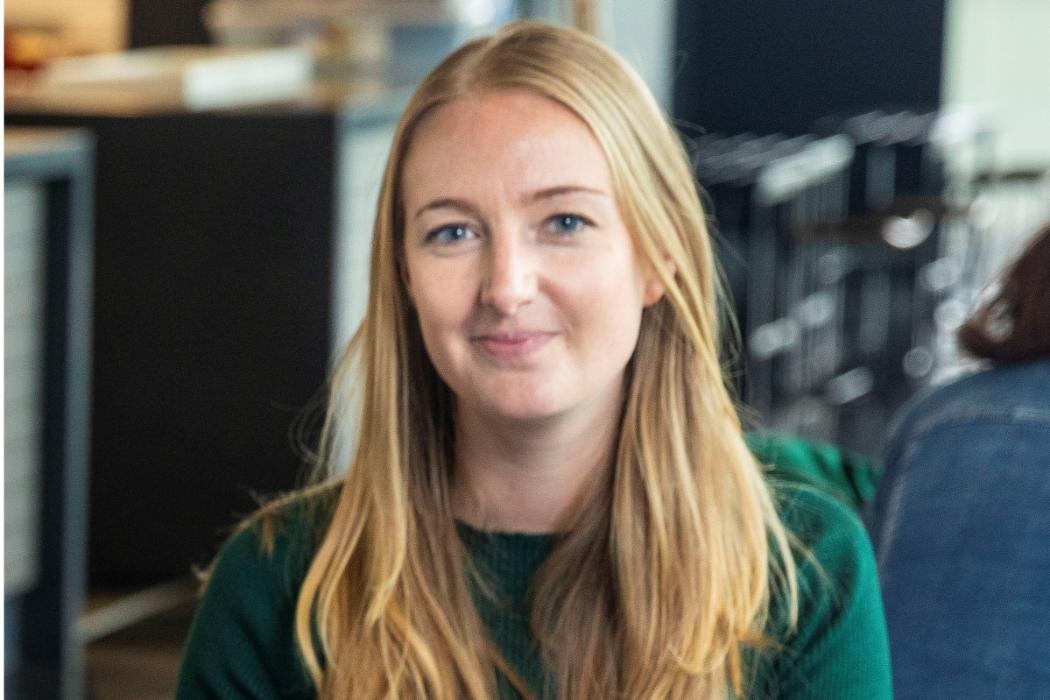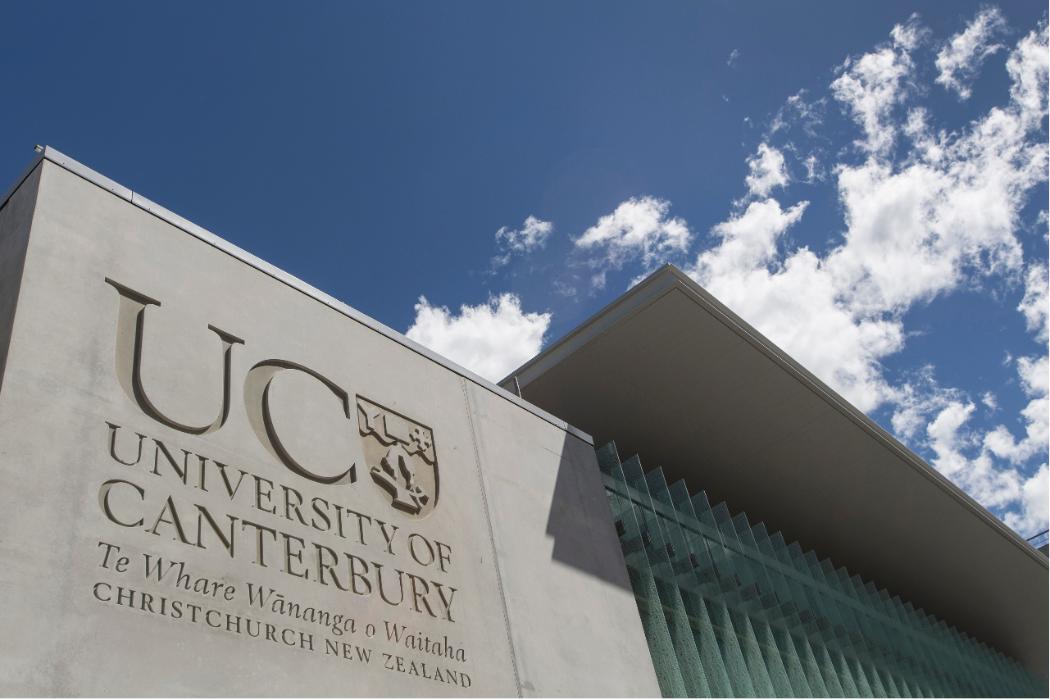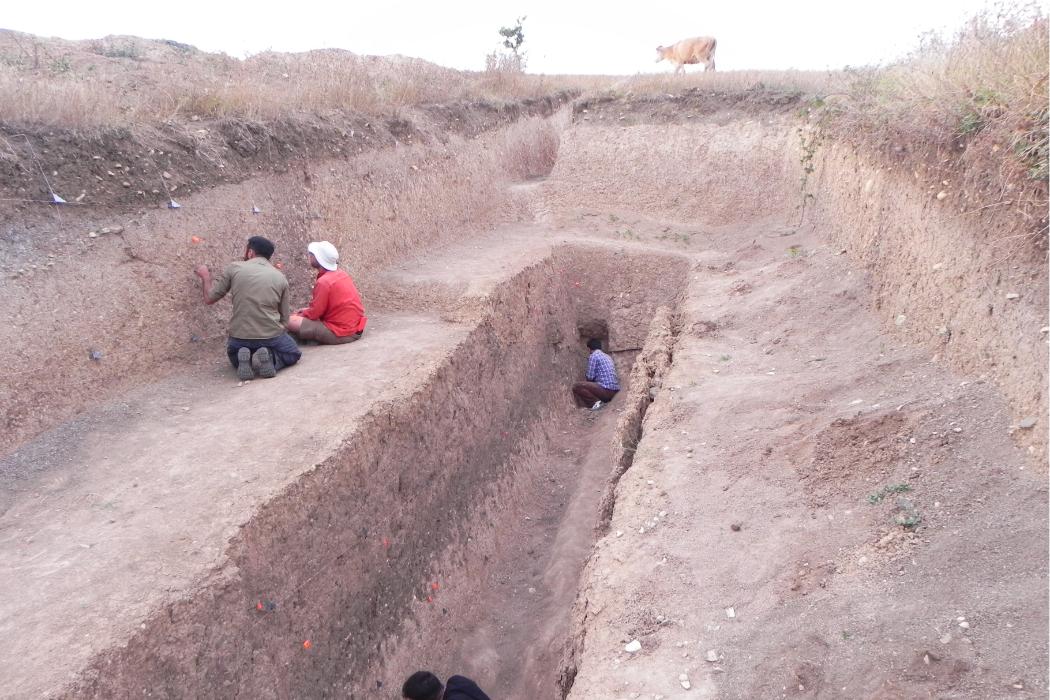Biodegradable plastic could be “material of the future”
Dr Heon Park believes biodegradable plastic is an option because it has a lower carbon footprint than wooden or paper disposable cutlery and degrades more quickly than conventional plastics. One potential additive he has been testing is powdered pounamu, a waste product from the jewellery carving and craft industry. Dr Park says early results using pounamu show that when a small amount of pounamu powder is added to biodegradable polylactic acid plastic, it enhances strength, reduces flammability, and accelerates degradation. Dr Park has also carried out lab testing mixing biodegradable polyvinyl alcohol plastic with spent grain – a by-product of the beer brewing industry - and turning it into a thin film. He suggests these plastic sheets could be used as a mulch on farmland to keep the soil moist and reduce weeds, meaning less energy is used for irrigation. “The ultimate goal is to develop the technology further and bring about tangible impact. By investing time, effort, and resources I want to create a meaningful and practical solution that can make a real difference for our environment,” says Dr Park.
The worm turns
Food scraps at UC are being converted into nutrient-rich compost thanks to a new project by enthusiastic staff and students. The team of dedicated composters established a worm farm as part of Compost Awareness Week in May. The new worm farm helps to educate people about using food scraps wisely, with a wooden box farm located in a high foot-traffic area outside a major food court on campus. The worm farm houses some 1000 hungry worms and provides another way to create compost alongside the Community Gardens on campus which produces many kilos of compost a year.
Plastic Reducers in Aotearoa
New research explores people’s experience of plastic-free food shopping in New Zealand. To understand how plastic reducers shopped for groceries, UC’s Dr Joya Kemper and research team members used a range of supermarkets and specialist stores. The research aligns with the global movement Plastic Free July and aims to help consumers reduce their environmental footprint through the reduction of single-use plastic. “While we find that plastic-free shopping is challenging, it is possible. We hope to learn from those currently practicing a new way of grocery shopping, by providing tips and tricks, picked up by those who have overcome some challenges, and help those who may feel equally motivated but ‘stuck’ in the current system,” says Dr Kemper.
Our new Waste Plan
UC’s new Waste Plan (2022-2030) sets out our waste reduction strategies, involving five key priority areas with corresponding strong reduction targets, to be measured either by annual audit, against EFTS, or both, including: reducing landfill waste stream; reducing contamination of comingled recycling stream; retaining or improving on clean organics stream; dropping the clean landfill rate; and reducing single use plastic bottle disposal drop.
Partnering for sustainable milk
UC has partnered with the region’s only supplier of pasteurised A2-protein milk in returnable glass bottles. Canterbury’s Choice farm uses a recycling system for water and chemicals to save on energy and waste during wash cycles. The cows are 90% grass fed, and a supplement feed of organic kale, barley and other nutritious grains, are all produced on the farm. The cows dine surrounded by natural springs and shelter belts that attract native birds, and during milking they listen to classical music. Thanks to a partnership with the Department of Conservation, bioreactors have improved water quality by over 50%; so the water leaving the farm is cleaner than when it arrived. The circular system reduces wastage and encourages reuse of materials, with glass bottles and steel kegs replacing plastic and helping to achieve their zero-waste goals.\
From Plastic Waste to Protective Gear
As part of #PlasticFreeJuly, Engineering Product Design students at UC took on the challenge of transforming plastic scraps from a 3D printer into practical products. Their mission was to create elbow pads and wrist guards for skateboarders, leading them to explore creative and technical solutions. We must engage practitioners with the creativity and responsibility of their design, says Industrial Product Design Lecturer Hossein Najaf Zadeh. “I am very pleased and proud of my students’ effort, passion, and creative thinking.”
Education in Sustainable Business
UC offers an extensive range of study options in sustainable business. Balancing economic benefits with environmental and social considerations is essential for long-term business success and resilience. Some of the many study options available include:
- Business, Society and the Environment
- Social and Environmental Reporting
- Managing Corporate Responsibility
- Environmental Economics
- Business and Sustainability
- Social Entrepreneurship
- Bachelor of Social and Environmental Sustainability
- Major in Sustainable Business, Enterprise and Economics
- Minor in Business and Sustainability
Pioneer of environmental accounting
UC Business School Professor Markus Milne won our 2021 Research Medal for his work investigating the social and environmental impacts of business. Professor Milne began his research some 30 years ago, when the field was very new, and today he is known as an international pioneer of social and environmental accounting (SEA). Professor Milne is Aotearoa New Zealand’s most cited accounting academic. “I don’t think anybody in the late 1980s envisaged how corporate practice might develop towards environmental accountability,” he says. As awareness of climate change and human impacts on our planet’s ecosystems increases, the importance of Professor Milne’s work has gained recognition internationally. “I think that frugality and simplicity spills over into everyday living and that is essential for humanity to behave sustainably. It teaches you humility. At times, the consequences for survival of not fitting in on nature’s terms are all too grim and obvious. That is a lesson as a species we seem reluctant to learn,” says Professor Milne.
Design ethics
The Design ethics course offered by our unique School of Product Design intends to provoke thought and reflection over the role of the designer and their responsibilities. Students develop an understanding of the many aspects of ethical and moral debate within the contemporary product design industry, including the impacts of design on Māori and Indigenous understandings and concerns related to sustainability and the idea of responsibility in design.
Smart tech to help monitor food safety remotely
Drones, satellite imaging and artificial intelligence are some of the smart technology tools that could soon be used to ensure farmers and other food industry businesses are following health and safety rules. A UC-led project has explored the opportunities and challenges of this process, which involves auditors checking a farm or company’s systems are compliant without physically visiting the site. According to the lead author, Professor Pavel Castka, from UC’s Business School, smart technology tools will bring numerous benefits to farmers and others working in the food industry, addressing some of the concerns about the cost and time involved in compliance auditing. Professor Castka also believes there are benefits to consumers from improving accountability for health and safety at food processing facilities. “Consumers care more about the quality and the environmental and social impacts of the food they buy now, so I think monitoring and reporting processes are becoming more important to meet this consumer need,” he says.
Turning biowaste into economic boost
A UC-led project, in collaboration with Manaaki Whenua Landcare Research, Plant and Food Research and Lincoln University, aims to turn biological waste products into new products that could deliver a significant economic boost to New Zealand’s economy. UC’s Professor Brett Robinson is spearheading the project. Waste products from New Zealand’s food processing industry, such as potato scraps and grape skins, could be transformed into high-value soil conditioners and animal feed. “We want to create economic and environmental value from biowastes by ensuring the nutrients they contain are harnessed to improve our soils and feed our animals. Our overarching goal is to reuse and recycle our waste, helping to make our agricultural economy more circular and our food production more sustainable in the long-term,” he says. Transforming this biowaste into high value products, such as soil conditioners and nutritionally balanced animal feeds, would help reduce New Zealand’s carbon emissions and bring economic and environmental benefits.
New materials from flax and cabbage tree leaves
Sustainable materials made from cabbage tree leaves and flax could soon be used to build high-performance skis and skateboards in Christchurch. After experimenting in the garages of their student flats, two UC Industrial Product Design students, Ben Scales and William Murrell, have developed new natural composite materials using New Zealand ti kōuka (cabbage tree) and harakeke (flax). They plan to use these materials to create recreational products such as skis, snowboards, kayaks and skateboards, currently manufactured from fibreglass and carbon fibre. They have finished their first working prototype, a harakeke biocomposite skateboard made from recycled polylactic acid derived from corn starch and harakeke fibre, and plan to have other prototypes under way next year. Scales says making recreational products from recycled natural materials is a growing market internationally, but their point of difference is in using distinctly New Zealand materials to create a new fibre.
Scales and Murrell have already had inquiries from international companies who’ve heard about their work and want to find out more.
Ethical and Respectful Product Design
Our unique School of Product Design offers degree courses that combine Science and Engineering, Creative Design and Business. Graduates develop creative ideas and gain the practical business skills needed to commercialise new product ideas. The School’s Natural Products Properties and Production course encourages students to be ethical and respectful when using resources from nature in formulated products and focusses on sustainability and cultural issues surrounding the ownership and use of native flora and fauna.
UC for Fair Trade
UC is recognised by the Fair Trade Association of Australian and New Zealand as a Fair Trade University, and we were the first New Zealand entirely Fair Trade campus. We received accreditation back in July 2017, and are incredibly proud of this achievement. Being recognised as Fair Trade means we are committed to being a socially responsible institution. We demonstrate this by supporting Fair Trade growers and producers, purchasing certified products, and using these products in our kitchens and campus retail outlets.
Management Education
UC Business School is a signatory to the Principles for Responsible Management Education, a global movement to realise the SDGs through responsible management education. Courses strongly align with the SDGs objectives. Examples include a general introduction to the changing responsibilities of business to society and the environment, an overview of sustainability theory and practice in respect to conducting business effectively, investigating current forms of social and environmental accounting and reporting by a range of entities, examining contemporary strategies and issues in tourism marketing and management, and foundational concepts for understanding sustainability from a business perspective.
Campus Master Plan
Our Campus Master Plan (guiding our built infrastructure for the next 20-30 years) incorporates design principles that celebrate the campus’s natural landscape and open spaces. For example, endemic natives are to be planted both sides of all three tributary streams that flow through our campus, to improve biodiversity. Another design principle focusses on energy and activities on campus. Our dedicated, full-time, Energy Manager is responsible for actively implementing and managing a reduction in our consumption of energy, water and carbon emissions.
Campus Waste
In 2020 our Sustainability Office released new waste messaging that introduced the idea of the waste hierarchy. Having asked our UC community for ten years to think about what items go in which waste bins, we now want to urge people to consume less and produce less waste. In 2021 we plan to conduct an extensive waste audit to test whether our messaging has been successful and to help us understand if there are any particular locations on campus we need to be better prepared for.
Responsible Practices
We are an entirely Fair Trade campus. Our finance practices incorporate sustainable procurement, considering the environmental, social and economic consequences of design, materials used, manufacturing methods, logistics and disposal. Purchasing is conducted using our electronic central purchasing tool Unimarket, which directly interfaces with our primary Financial Management Information System (Oracle EBS). Comprehensive finance practices user guides are made available to staff online.



